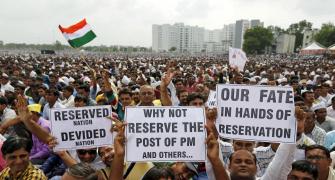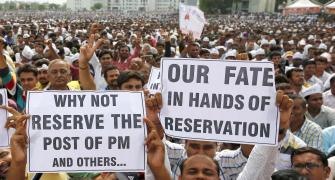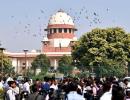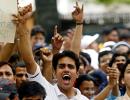The Supreme Court on Friday, in an interim order, allowed resumption of medical counselling for NEET-PG admissions for the year 2021-22 and upheld the validity of 27 per cent OBC quota.
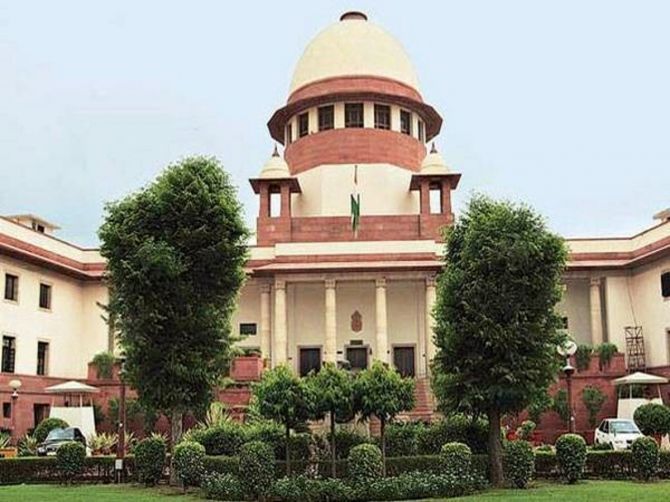
A bench of Justices DY Chandrachud and AS Bopanna said that detailed reasons for the interim order will follow, and the counselling for the NEET-PG for the academic year 2021-22 will proceed as per the criteria already notified.
“Counselling on the basis of NEET-PG 2021 and NEET-UG 2021 shall be conducted by giving effect to the reservation as provided in the notice dated July 29, 2021 including the 27 per cent reservation for the OBC category and 10 per cent reservation for EWS category in the All India Quota seats”, the bench said.
It said the submissions which have been made before this court over a span of two days necessitates a detailed interim order on the applicability of the EWS criteria as notified by Office Memorandum of 2019 for NEET-PG 2021.
“The formulations of the reasons in the interim order on the EWS reservation would take some time. The validity of OBC reservation in the All India quota seats in NEET-PG and NEET-UG is upheld for reasons to follow”, it said.
The bench said, “We accept the recommendation of the Pandey committee that the criteria which have been stipulated in Office Memorandum (OM) of 2019 be used for 2021-22 in order to ensure that the admission process is not dislocated.
“The criteria for the determination of EWS notified by OM of 2019 shall be used for identifying the EWS category of candidates who appeared for NEET-PG 2021 and NEET-UG 2021 examinations”, the bench said.
It added that the validity of the criteria determined by the Pandey committee for identification of EWS would prospectively for the future will be subject to the final result of the petitions.
“The petition shall be listed for final hearing on the validity of EWS criteria as recommended by the Pandey committee in the third week of March, 2022. Reasons shall follow”, the bench said.
During the two consecutive day hearing which started on Wednesday, the Centre had told the apex court that the introduction of OBC and EWS reservations after the issuance of NEET-PG exam notification does not amount to "changing the rules of the game" midway.
Solicitor General Tushar Mehta, appearing for the Centre, had submitted that the submission of petitioners that OBC reservation is unconstitutional is legally unsustainable.
Justifying the application of Rs 8 lakh income criteria for the EWS category, Mehta said the decision was arrived at after due deliberation by the Ministry of Social Justice and Empowerment.
The bench passed the interim order on a batch of petitions filed by the NEET-PG candidates, who had challenged a July 29, 2021 notification for the implementation of the OBC and the EWS quotas from the 2021-22 academic year on grounds that the Rs 8 lakh income criteria for determining EWS was with without any scientific study.
The Centre had constituted the three-member committee, comprising Ajay Bhushan Pandey, former finance secretary, VK Malhotra, member secretary, ICSSR, and Sanjeev Sanyal, Principal Economic Adviser to Centre, on November 30 last year according to an assurance given to the top court to revisit the criteria for determining EWS.
The committee in its report submitted on December 31 last year to the Centre said, "The current gross annual family income limit for EWS of Rs 8 lakh or less may be retained. In other words, only those families whose annual income is up to Rs 8 lakh would be eligible to get the benefit of EWS reservation."
In its affidavit, the Centre has said it has decided to accept the recommendations of the three-member panel to retain the current gross annual family income limit for defining EWS at Rs 8 lakh or less.
It has also told the court that according to the panel, family income is a "feasible criterion" for defining EWS and in the current situation, a threshold of Rs 8 lakh seems reasonable for the purpose.
It has said the panel has recommended that "only those families whose annual income is up to Rs 8 lakh would be eligible to get the benefit of the EWS reservation".
On November 25, the Centre had told the top court that it has decided to revisit Rs 8 lakh annual income criteria for determining EWS for reservation in admissions and jobs, and the counselling for the NEET postgraduate medical courses will be further postponed by four weeks.


